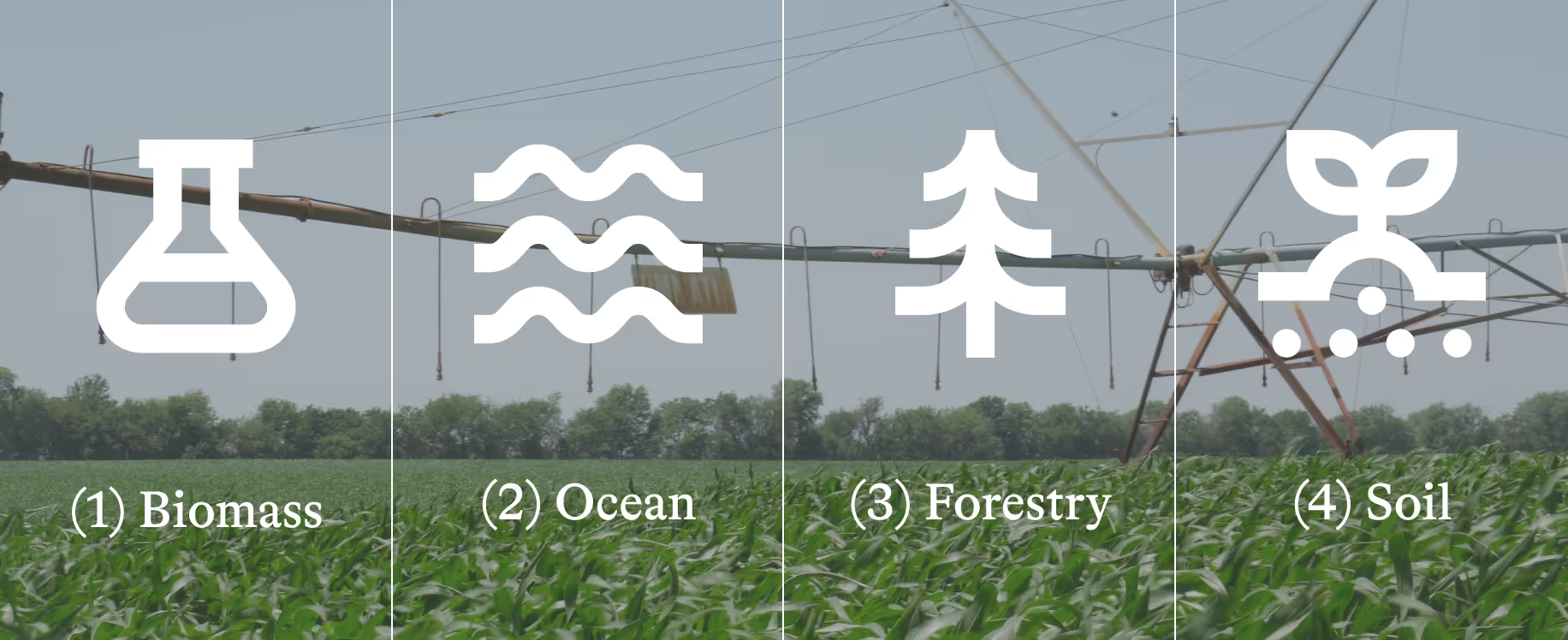Commons Offset Portfolio Review: Q3 2023

Join the community





Since April 2021, the Commons community has purchased over 62,151.77 tons of carbon offsets. That's an impact equivalent to taking 13,831 cars off the road for a year. You can watch the live portfolio review hosted by Commons Carbon Strategy Manager, Sophie Janaskie, with special guest Sebastian Smith from Charm Industrial. Plus read below to get more info about each partner in our portfolio.
Carbon Markets Update
Carbon markets are continuing to become more transparent, despite some setbacks in trust and quality among some types of projects. Commons’ stance remains the same: there are high-quality carbon credits on the market that are worth supporting, and we’re dedicated to including those are the ones in our portfolio.
That being said, no project is perfect. By building a diversified portfolio of carbon credits from multiple project types, Commons helps our users balance costs, ensure quality, and mitigate the risks associated with each project.
Carbon Portfolio Update
Our team regularly monitors and evaluates our carbon offset providers to ensure we are sourcing the best offsets on the market for the Commons community. Below are some important takeaways from last quarter.
.jpeg)
Charm Industrial
Charm Industrial is performing at or above expectations.
Charm Industrial turns inedible crop residue into carbon-rich bio-oil, then pumps it into underground disposal wells, where it’s stored safely and permanently.
Q3 updates:
- Expanded operations: Charm started working with wildfire prevention teams to make sure that the brush removed is turned into bio-oil for permanent carbon removal.
- Job creation: ICF economists project that Charm can create 20,000 jobs by 2030 and 200,000 jobs by 2040 as they scale carbon removals. These jobs will support a just transition, largely repurposing existing mechanical, agricultural, and logistics skills.
- Community outreach: Charm completed a community sentiment research project, and found that communities with oil, gas, and agricultural operations were interested in learning more about the economic opportunities Charm could generate.
- Efficient transit: Charm brought a new railcar system online to scale transport operations 4x while lowering transport carbon intensity.
.jpeg)
Running Tide
Running Tide is performing at or above expectations.
Running Tide removes carbon by growing kelp in the open ocean and sinking it, permanently storing kelp carbon on the ocean floor.
Q3 Updates:
- Major carbon milestone: Running Tide sinking 275 tons of CO2 in their Icelandic deployment
- Proactive mitigation: Running Tide’s new externally-reviewed Catalog of Environmental Exposures will guide their mitigation efforts to make sure that the carbon they remove won’t adversely affect the marine environment.
- Framework for positive action: Running Tide created the Governance Principles for Responsible Climate Intervention to ensure that their work has a positive impact on ocean health and surrounding communities. They also developed and shared their Responsible Sourcing Strategy, to help develop carbon-negative supply chains that build resilience across industries and communities.
- Carbon buoy deep dive: Running Tide released a comprehensive breakdown of its Carbon Buoy system.
- Setting a new precedent: Running Tide was among the 40+ founding signatories to the Reykjavik Protocol — a set of best practices for the generation of nature-deployed environmental credits.
.jpeg)
Pachama
Pachama is performing at or above expectations.
Pachama verifies and monitors carbon offset projects using satellite imagery and machine learning.
Q3 updates:
As of June 2023, our portfolio includes two Pachama projects: Borneo Peatlands, and Manoa. A new addition to Commons offsets, Borneo Peatlands was assessed by BeZero and Sylvera and determined to have little risk of over-crediting and strong co-benefits.
- Borneo Peatlands: By avoiding planned deforestation in Indonesia, the Bornea Peatlands preserves one the largest remaining peat swamp forests which can store up to 20x the carbon of a typical forest. Last quarter, the project hired over 74% of their 174-person staff from communities in the project area. They also invested in training and up-skilling local communities and organizations based on community-identified needs like agroecology and community health.
- Manoa: Manoa Farm in the Amazon protects the land from unplanned deforestation. The project completed a two-year biodiversity study and started a new one, which will help identify and understand the behavior of different species that use the salt lick in the project area. Responses to community consultations highlighted job generation, movement of people in the region, and forest projection as positive impacts.
.jpeg)
Nori
Nori is performing at or above expectations.
Nori is a soil carbon credit marketplace that works with farmers to quantify and verify transparent, blockchain-based carbon removals.
Q3 updates:
- A new type of carbon credit: In June, Nori published a Blended Tonne whitepaper proposing a new type of carbon credit that pairs regenerative and permanent carbon removal with overlapping storage timelines
- B2C carbon removal: In July, Nori launched a carbon removal API for climate-conscious businesses, so that they can seamlessly integrate carbon removal directly into their point of sale
- Thought leadership: In October, Nori hosted a panel at the Carbon Unbound summit in London, joining together with carbon removal experts and innovators to help shape the future of this fast-growing industry.
- New educational content: In addition to informative new articles, Nori published new episodes of Reversing Climate Change and Carbon Removal Newsroom podcasts, covering topics like climate-forward baking, solar geoengineering, MRV tech, and more.

Grassroots Carbon
Grassroots Carbon performing at or above expectations.
Grassroots Carbon works with ranchers to apply regenerative farming practices that help the soil absorb more carbon.
Q3 updates:
- Setting a new precedent: Grassroots Carbon was among the 40+ founding signatories to the Reykjavik Protocol — a set of best practices for the generation of nature-deployed environmental credits
- Regenerating soil: Grassroots Carbon introduced regenerative land management practices like rotational grazing and cover cropping on farms in Nestle’s supply chain. Nestle’s support defrays expenses incurred by ranchers when implementing these practices. The partnership will measure enhanced soil health and reduced carbon emissions over a 15-year period.













